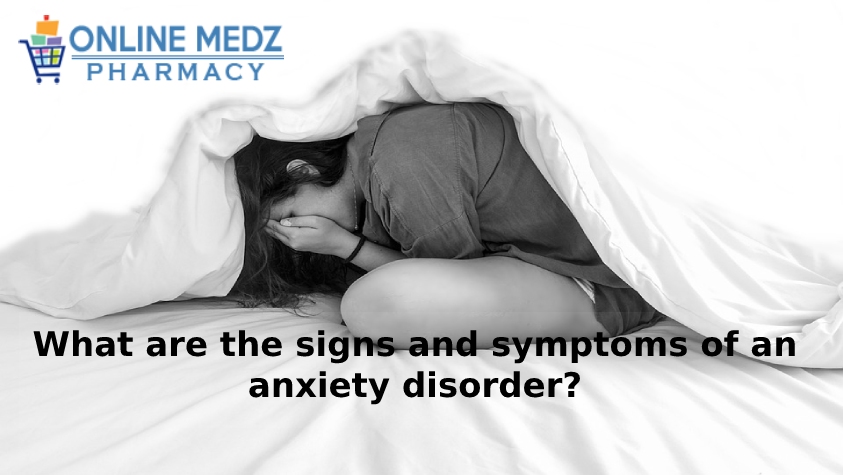Occasional experiencing anxiety is a normal thing in our daily life. However, people with anxiety disorders often have intense, excessive, and persistent worry about everyday situations.
Usually, anxiety disorders involve reconstructed episodes of sudden feelings of severe anxiety and fear or terror that peak within minutes (panic attacks).
These sensations of Anxiety and panic conflict with daily activities are difficult to manage, are out of proportion to the actual danger, and can last a long time. You may bypass places or situations to stop these feelings. Symptoms may begin during childhood or the teen years and extend to adulthood.
Examples of anxiety disorders involve specific phobias, generalized anxiety disorder, social anxiety disorder (social phobia), and separation anxiety disorder. You can have more than one anxiety problem. Sometimes anxiety occurs from a medicinal condition that requires treatment.
Whatever form of anxiety you may have, treatment can help you.
Page Contents
Signs and Symptoms of Anxiety
Common anxiety indications and symptoms involve;
- Feeling restless, nervous, or tense
- Having an enhanced heart rate
- Sweating
- Having a feeling of threatening danger, panic, or doom
- Trembling
- Breathing swiftly (hyperventilation)
- Feeling weak or tired
- Difficulty in thinking or concentrating about anything other than the existing worry
- Having trouble sleeping
- Experiencing gastrointestinal (GI) problems
- Having difficulty controlling worry
- Having the urge to avoid things that trigger anxiety
There are several types of anxiety disorders that exist;
Agoraphobia is a part of anxiety disorder; in this case, you fear and often avoid places or circumstances that might make you panic and make you feel helpless, trapped, or embarrassed.
Anxiety disorder due to a therapeutic condition involves intense anxiety or panic directly caused by a physical health difficulty.
Generalized anxiety disorder includes determined and excessive anxiety and worries about actions or events — even regular, routine issues. The concern is out of proportion to the genuine circumstance, is difficult to control, and affects how you feel actually. It often coincides with other anxiety disorders or depression.
Panic disorder involves reconstructed episodes of sudden feelings of extreme anxiety and fear or terror that peak within minutes, known as panic attacks. You may have feelings of chest pain, impending doom, shortness of breath, or a rapid, fluttering, or pounding heart (heart palpitations). These panic strikes may lead to suffering about them happening again or dodging situations in which they have occurred.
Selective mutism is a constant failure of children to speak in specific situations, such as school, even when they can talk in other conditions, such as at home with their close family members. This situation can interfere with work, school, and social functioning.
Separation anxiety disorder is a childhood disorder defined by anxiety that’s excessive for the child’s developmental level and linked to separation from parents or others having parental roles.
Social anxiety disorder or Social Phobia involves high fear, anxiety, and avoidance of social situations due to feelings of self-consciousness, embarrassment, and concern about being viewed or judged negatively by others.
Specific phobias are described by significant anxiety when exposed to a particular object or condition and a desire to avoid it. Phobias produce panic attacks in some people.
Substance-induced anxiety disorder is defined by symptoms of intense panic or anxiety resulting from taking medications, being exposed to a toxic substance, misusing drugs, or withdrawal from drugs.
Other specified anxiety disorders and general anxiety disorders are terms for anxiety or phobias that do not meet the specific criteria for any other anxiety disorders but are important enough to be disruptive and distressing.
When to seek professional help?
See your healthcare specialist if;
- You feel like you are grieving too much, and it is conflicting with your relationships, work, or other elements of your life.
- Your worry, fear, or anxiety is bothering you and hard to control.
- You have trouble with alcohol or drug use, feel depressed, or have other mental health affairs along with pressure.
- You think your stress could be associated with physical health difficulty.
- You have self-destructive thoughts or behaviors — if this is the problem, seek emergency medication immediately.
- Your disturbances may not go away, and they may get more critical over time if you do not seek help. See your healthcare provider or a mental health specialist before your anxiety gets more dangerous. It is easier to treat if you get to service early.
How to prevent anxiety?
There’s no way to prophesy for sure what will make someone develop an anxiety disorder, but you can practice steps to lessen the impact of indications if you’re anxious;
Get help first. Anxiety, like several other mental health situations, can be harder to manage if you wait.
Stay active. Join activities that you appreciate and that make you sense good about yourself. Enjoy social communication and caring relations, which can reduce your worries.
Avoid alcohol or drug use. Alcohol and drug use can make or worsen your anxiety. If you are addicted to any of these, quitting can obtain you anxious. If you can not stop on your own, see your specialist or find an assistance group to help you.

